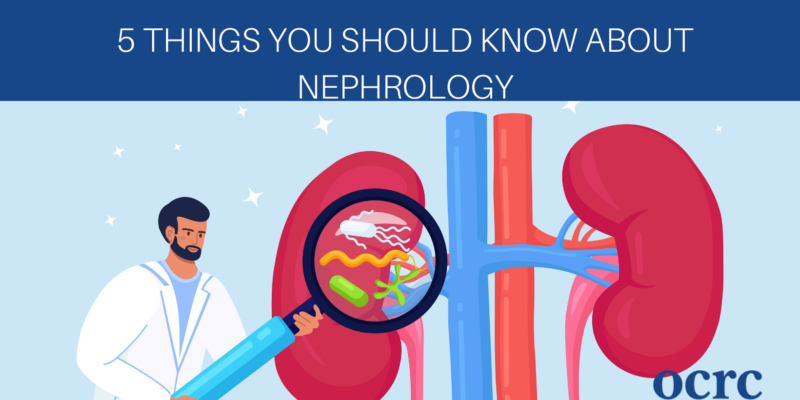5 Things You Should Know About Nephrology
Your kidneys play an essential role, essentially acting as a filter to purify your blood and remove waste. They filter an impressive 200 quarts of fluid every 24 hours before returning it to the bloodstream. If the kidneys do not do their job properly, waste can build up in the blood cause damage to other parts of the body. Read on to see how this can require treatment by a nephrology doctor, or a nephrologist.
Of course, there are plenty of ways to keep your organs healthy in terms of lifestyle choices. General prevention and/or management of early kidney disease is often covered among other areas of the medical field, such as with your primary care doctor. Sometimes, though, the symptoms can become more severe and require a kidney specialist (nephrologist) to step into the picture.
5 Nephrology Facts That You Should Know:
- Nephrology (stemming from the Greek word “nephros,” which means “kidney”) refers to a subspecialty of internal medicine that focuses on the diagnosis and treatment of kidney disease. Logically, the word “nephrologist” refers to a specialist who comes into the picture when kidney disorders/dysfunction become complicated and require specialized treatment.
- A nephrologist’s career path isn’t easy. In addition to completing a bachelor’s degree and four years of medical school, one must also complete a three-year internal medicine-focused residency. Once this is complete, the future nephrologist then completes a two-year fellowship in the specialty before taking the exam to become a certified nephrologist.
- Nephrologists specialize in diagnosing and treating conditions, including but not limited to blood/protein in the urine, chronic kidney disease, kidney stones/infections, kidney cancer, and renal artery stenosis (narrowing of arteries that carry blood to kidneys). Because the heart and kidneys are so closely connected in their functions, a nephrologist will investigate any heart problems as symptoms relating to kidney disease.
- Nephrology and urology are not synonymous. While they both involve treatment of conditions affecting the kidney (both a nephrologist and a urologist may treat kidney stones), a urologist is more focused on conditions that affect the urinary tract (such as bladder infections/issues, erectile dysfunction, and prostate issues).
- Significant roles of a nephrologist involve overseeing kidney dialysis, renal replacement therapy, and care before and after the kidney transplant process when necessary. A nephrology care team may include a nephrologist, a nephrology nurse, a renal dietician, and even a nephrology social worker. All of these individuals can provide counseling to the patient and their loved ones as they cope with kidney disease and the changes it may cause to their lifestyle.
Learn More About Kidney Function
If you have high blood pressure, diabetes, heart disease, or a family history of kidney problems, you may want to regularly meet with a doctor to monitor your kidney function. Sleep problems and urinary irregularities can also be symptoms in the early stages of kidney disease.
In addition to staying hydrated, eating a balanced diet, using caution with over-the-counter medications, and keeping blood sugar in check, it’s essential to keep your primary doctor informed of any concerns you may have. If necessary, your doctor may refer you to a nephrologist to look into any possible kidney issues more closely.
For more information about kidney disease and prevention, check out some of our other blogs, such as How Do the Kidneys Work? and Seven Ways to Keep Your Organs Healthy.

